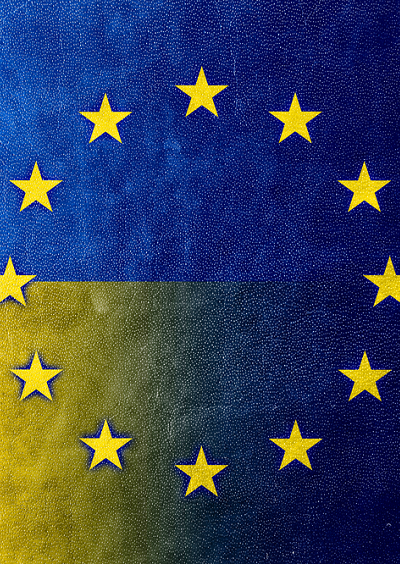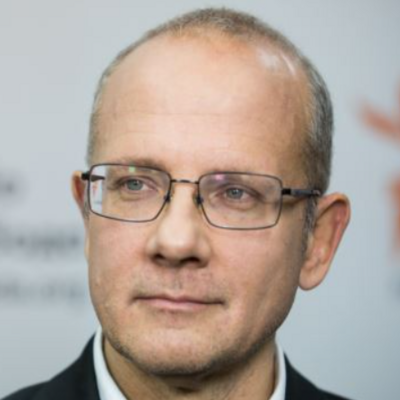Ukraine, the West and a Dead End
What the West must do so that a reformed Ukraine can survive in the face of a continuing Russian threat.
January 4, 2017

The continuing Ukrainian reforms and, in particular, slowly returning economic growth have started to demonstrate first real-life effects of Western help to Kyiv.
Yet, as long as Ukraine’s security issues remains unsolved, the reformers’ achievements to date can also become meaningless.
That is because the Kremlin is and will be determined to do everything in its power to prevent Ukraine from becoming a success story.
An efficacious reform there would be a most unwelcome reminder to Russians that an Orthodox and Eastern Slavic post-Soviet country — rather than commiserating forever in the way things are, as if it was some kind of fated order — can actually clean up its act.
Another Marshall Plan at work
The term Marshall Plan is seldom used (and usually to be avoided as it raises surreal hopes of aid). Yet, the current level of Western support for the stabilization and reform of Ukraine actually amounts already to an equivalent of the U.S.’s post-war European Recovery Program (the technical name of the “Marshal Plan”) for a country like Germany.
The sums to date provided or earmarked by the IMF, World Bank, EU and Western countries are large and keep growing.
While the enormous European and American help now flowing into Ukraine is by itself to be welcomed, the West’s approach to Kyiv is plagued by a strategic defect.
The EU, United States, Canada, Switzerland and other Western donors are helping to completely reshape the Ukrainian state and economy.
Yet, they are thereby making a gradually recovering and succeeding Ukraine ever more threatening to Putin and his peculiar political system.
Russia as a spoiler
Europeans seem to quietly hope that Putin won’t force their hand – and that he will let economic and other reforms in Ukraine proceed without having his military, paramilitary, cyber and other forces intervene in the process. Yet, this could be a miscalculation.
In a worst-case scenario, the support which the Europeans and other nations and organizations are now providing Ukraine with could ultimately be for naught.
European denialism
As much as many Europeans would like to run away from this point, ultimately first things ought to come first: Until Ukraine’s fundamental security challenges are not met, the principally laudable Western reform support may be useless or even paradoxically counter-productive.
Unless Ukraine is embedded into a sufficiently strong international structure, Putin or his successor will remain free to react to future Ukrainian achievements the way they prefer.
And for as long as the kleptocratic Russian elite perceives the political costs of interfering in Ukraine as relatively low, Moscow may be unable to resist the temptation to use its vast manipulation potential.
The Kremlin will be keeping its escalation dominance to disrupt, if it wishes, Ukraine’s social stability by this or that mean.
If more interventions by Moscow come?
The West therefore has to think seriously and quickly – before it is too late – about an uncomfortable question: How to increase the stakes, expenditures and risks for the Kremlin of a possible new Russian intervention in Ukraine?
Western states and organizations need to create a situation in which Putin & Co. start considering the vagaries of novel escalation and manipulation in Ukraine.
Ideally, such a new state of affairs will be sufficient to change Moscow’s calculus. It should make the Kremlin understand that the external costs of new interventions exceed the domestic perils that successful Ukrainian reforms may pose for the Russian regime.
The following measures could have a signaling power toward Moscow and contribute to securing the Ukrainian reform process:
- Kyiv should be either provided with advanced defensive weaponry of sufficient quality and quantity, or be enabled to produce itself such weapons in joint ventures.
- The two Western Budapest Memorandum signatory states (US, UK) should regenerate, specify and elaborate the “security assurances” they gave Kyiv in 1994.
- The West should support Ukraine in building a regional coalition of the willing (“Intermarium”) with countries like Poland and Romania that, out of their own narrow national interest, have a fundamental stake in the stability and survival of the Ukrainian state.
- And the EU could send the Kremlin already now a list of possible future legal measures, financial sanctions and economic boycotts which it would enforce, if Russia advances further into, or otherwise destabilizes, Ukraine.
Once the Kremlin calculation of the costs of further escalation in Ukraine changes, Western help and assistance to Kyiv will have a more sustainable basis and deeper impact. Ukraine will get a serious chance to become a “second Poland” (in terms of economic reforms and success).
In the opposite situation, the Kremlin may well decide one day to trigger, in one way or another, a collapse of the Ukrainian state.
Such an event might be highly beneficial to the short-term stability of Russia’s current political regime. Yet it would have repercussions far beyond the borders of Ukraine.
The EU’s security calculus: More refugees?
Especially, the EU has ample reasons to be more than just a silent, well-wishing bystander. It has its weighty reasons to show already some real muscle.
For instance, an implosion of the Ukrainian state could mean that the EU will have to deal with millions of Ukrainian refugees flowing into Poland, Slovakia, Hungary and Romania – and heading further west.
Moreover, Ukraine’s four nuclear power stations may end up in insecure hands or regions. A breakdown of the territorially largest fully within Europe located state would create a whole array of additional grave security issues along the EU’s eastern border.
All of which is why making Ukraine more secure and less vulnerable to future subversion by the Kremlin is in the vital interest of all European nations (including the Russian people, if unfortunately not its leadership).
Takeaways
As long as Ukraine’s security issues are unsolved, the reformers’ achievements can also be meaningless.
The West’s approach to Kyiv is plagued by a strategic defect.
Is the West making Ukraine ever more threatening to Putin and his peculiar political system?
It is essential for Ukraine to be embedded into a sufficiently strong international structure.

